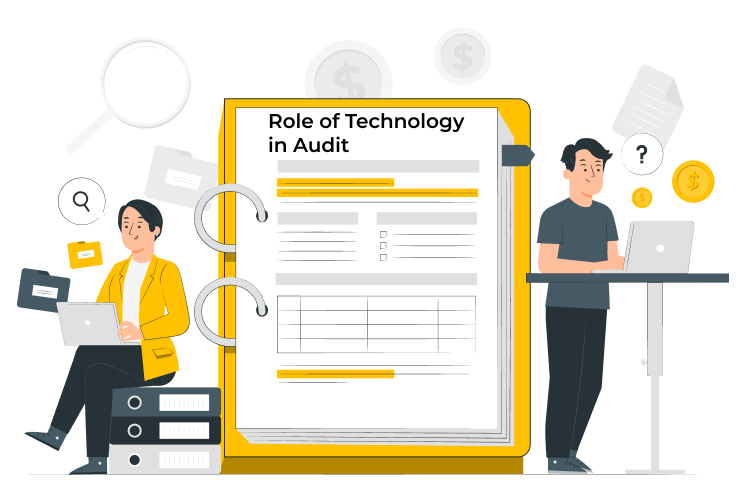
In recent years, the role of technology in statutory audits has become increasingly important. With the rapid development of data analytics and artificial intelligence, auditors are now able to use these tools to improve audit efficiency and accuracy. In this post, we will explore the ways in which technology is transforming statutory audits and the benefits it brings to the audit process.
Section 1: The Use of Data Analytics in Statutory Audits Data analytics is one of the most significant technological advancements in the audit profession. It involves the use of software tools and algorithms to analyze large volumes of data quickly and efficiently. This technology is used to improve audit accuracy and reduce the risk of errors in the audit process. By analyzing data, auditors can detect anomalies and irregularities that may indicate fraudulent activity, identify trends and patterns in financial data, and gain a deeper understanding of the client’s business operations.
Section 2: Artificial Intelligence in Statutory Audits Artificial intelligence (AI) is another technology that is revolutionizing statutory audits. AI-powered systems can analyze data more comprehensively and quickly than humans, identifying patterns and insights that may be missed by traditional audit methods. AI tools can also perform tasks that are typically time-consuming and labor-intensive, such as reviewing large volumes of financial data, identifying inconsistencies in financial statements, and detecting anomalies in financial transactions. AI-powered audit tools can help auditors to focus on areas of risk and improve audit quality.
Section 3: Benefits of Technology in Statutory Audits The use of technology in statutory audits offers several benefits, including increased efficiency and accuracy, improved risk management, and reduced audit costs. By automating repetitive tasks and data analysis, auditors can complete audits more quickly and efficiently, allowing them to focus on higher-value activities, such as risk assessment and fraud detection. Additionally, technology allows auditors to work remotely, which can save time and reduce travel expenses.
Conclusion: In conclusion, technology is transforming statutory audits and improving the audit process in significant ways. Data analytics and artificial intelligence are enabling auditors to analyze large volumes of data more quickly and accurately, reducing the risk of errors and improving the quality of audits. The benefits of technology in statutory audits are clear, and it is likely that we will continue to see rapid advancements in this area in the years to come. As auditors embrace technology, they will be better equipped to meet the evolving needs of their clients and provide more valuable insights into their business operations.
Leave a Reply